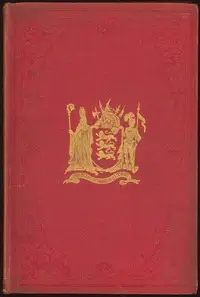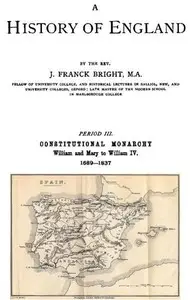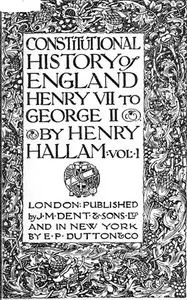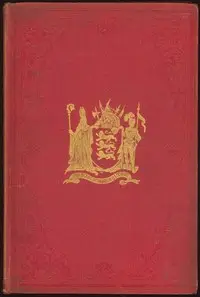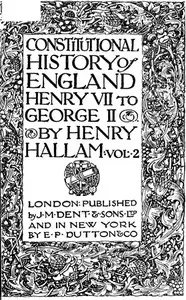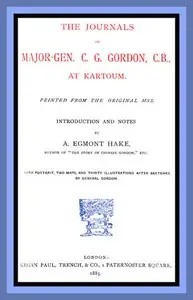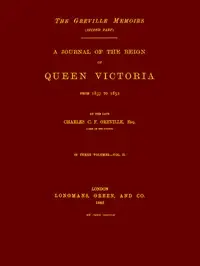"Constitutional History of England, Henry VII to George II. Volume 3 of 3" by Henry Hallam is a historical analysis that explores the development of English constitutional government from the time of Charles II, during the Stuart period, focusing on the relationship between the Crown and Parliament. It examines important subjects like the constraints on the King's power, the growing importance of the press, and the detailed workings of parliamentary rights. The book begins by looking at how constitutional rule worked under Charles II, showing how his reign differed from earlier monarchs, where people's rights were often ignored. Hallam looks at how Parliament reacted to the government exceeding its authority and explains how important laws like the Habeas Corpus Act came about. It also looks at arguments over the rights of the House of Lords and the House of Commons, mainly about taxation and protecting their own powers, laying the groundwork for more discussion about the conflicts that shaped English government during this changing time.
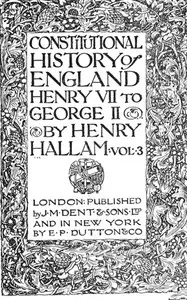
Constitutional History of England, Henry VII to George II. Volume 3 of 3
By Henry Hallam
Witness the struggle between a king and Parliament as they clash over power, taxation, and the very meaning of freedom in a nation's transformative era.
Summary
About the AuthorHenry Hallam was an English historian. Educated at Eton and Christ Church, Oxford, he practised as a barrister on the Oxford circuit for some years before turning to history. His major works were View of the State of Europe during the Middle Ages (1818), The Constitutional History of England (1827), and Introduction to the Literature of Europe, in the Fifteenth, Sixteenth and Seventeenth Centuries (1837). Although he took no part in politics himself, he was well acquainted with the band of authors and politicians who led the Whig party. In an 1828 review of Constitutional History, Robert Southey claimed that the work was biased in favour of the Whigs.
Henry Hallam was an English historian. Educated at Eton and Christ Church, Oxford, he practised as a barrister on the Oxford circuit for some years before turning to history. His major works were View of the State of Europe during the Middle Ages (1818), The Constitutional History of England (1827), and Introduction to the Literature of Europe, in the Fifteenth, Sixteenth and Seventeenth Centuries (1837). Although he took no part in politics himself, he was well acquainted with the band of authors and politicians who led the Whig party. In an 1828 review of Constitutional History, Robert Southey claimed that the work was biased in favour of the Whigs.

